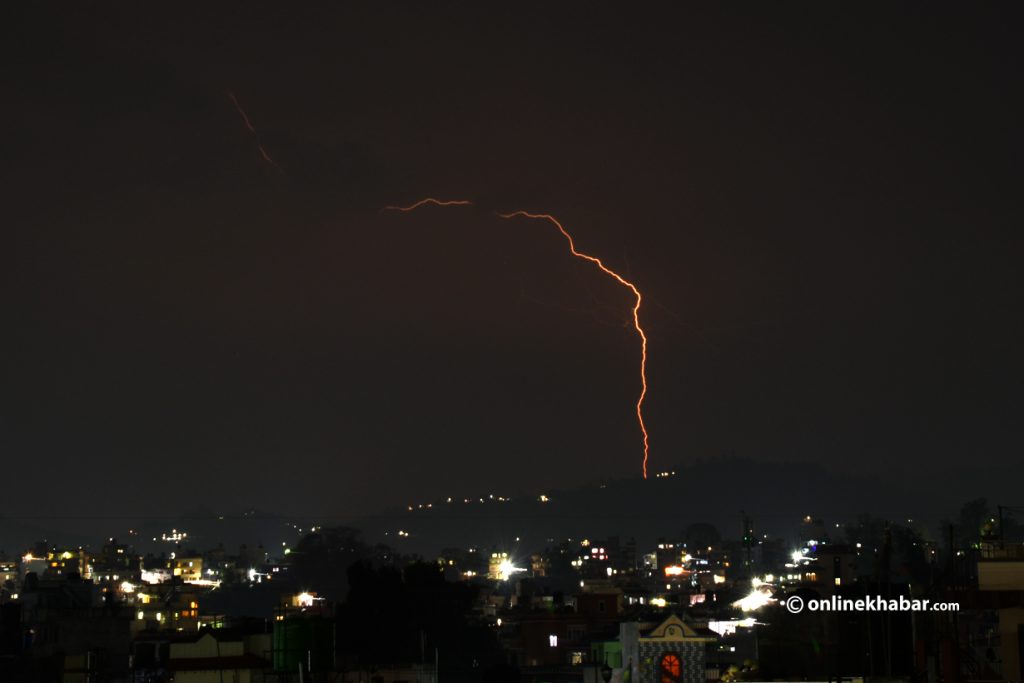
Barcelona, August 15
A 30-year-old Nepali woman, Anju (name changed), recently made it to Spain after an arduous and risky journey through the illegal “donkey route,” involving several countries in Europe. Originally from Syangja, Nepal, Anju had set out for a better future, only to face months of hardship, exploitation, and peril.
In April 2023, Anju left Nepal for Cyprus through a manpower company in Kathmandu, paying 500,000 Nepali rupees for the trip. She worked as a domestic helper in Cyprus, earning 400 euros a month with food and accommodation provided by her employer. However, her ultimate goal was to reach Portugal, believing it would be easy to travel there from Cyprus and obtain residency there.
Unaware of the dangers of using illegal routes, Anju did not even send money to her home, she continued to save up for her dream to reach Portugal and obtain residency. After working for eight months, Anju saved her earnings and handed over 2,000 euros to a Pakistani man who promised to help her reach Portugal illegally.
Unfortunately, the man disappeared with her money. Undeterred, Anju then contacted a Nepali broker who charged her 4,000 euros for the same promise. She hastily agreed and sent the money to Nepal. Soon after, she fled from her workplace in Cyprus with a visit visa arranged for Dubai. Anju spent four days in Dubai.
The hardships on the donkey route
In Dubai, Anju joined a group of seven other Nepali women, all attempting to illegally make their way to Europe. Together, they flew to Serbia before continuing to Bosnia-Herzegovina. This is where Anju’s ordeal began, as she embarked on the dangerous and illegal “donkey route” used by migrants attempting to enter Europe without proper documentation.
To avoid detection, Anju destroyed all her identification documents, including her passport, and paid another 1,000 euros to smugglers. At that point, she had only 50 euros for herself.
In January 2024 her hardship on the donkey route began. For the next five months, she endured physical and mental hardship as she repeatedly tried to cross the border from Bosnia into Croatia. Crossing the border of Croatia through Bosnia was as challenging as walking on fire.
“Walking on the donkey route is called a ‘game’,” she said, “We set out at night for the game. Two taxis were used and we reached Bihak in Bosnia.”
From there, Anju had to walk for hours through a long path in the jungle. As she walked, it was already 4 in the morning. When she finally reached near the Croatia border, she saw some old houses. She said, “We turned those old houses, which people had stopped living in, into resting places.”

Anju discovered nationalities other than Nepalis who attempted to enter Europe through illegal routes. “I saw 40-50 people hiding in different groups, but it was difficult to estimate the exact number,” she said.
With so many people entering Croatia, there was also a risk of being caught by the police. In her first attempt, she crossed the Croatian border and reached the nearest bus station. But unfortunately, she was caught by the police there. They put her in a van and sent her back to Bosnia. This sequence continued till the ninth time.
It became like a cycle for Anju. Many of her friends changed during this journey. Some became successful in crossing the border hiding from the police while some were sent back to Bosnia with her.
Each time Anju attempted to cross the border she endured beatings and extortion from smugglers along the way. Her journeys were unpredictable with sorrowful stories each time she tried to cross the border from Bosnia to Croatia. “Physically and mentally, we had become very weak,” she said, “We had to bear the sticks of the smugglers as we could not walk. It had become normal to bear beatings.”
During that period, the smugglers who brought her to the border also changed many times. But her dream of reaching Portugal did not change. Anju remembered, “In Bosnia, we were treated as hostages by smugglers and it used to be stressful. On the one hand, the agent living in Portugal would not pick up the phone, on the other hand, the smuggler would only ask for money.”
After the smuggler offered to cross the border by car instead of walking, she paid 1,200 euros again. Of her group of seven, three had already crossed, and 10 new Nepalis joined them in Bosnia.
The smuggler also robbed the additional 10 Nepalis in front of them, using threats and persuasion to extract money. Each person in the new group paid 1,700 euros. “I hope no one else has to endure such suffering and beg their families for money,” she says.
After five months in Bosnia, she pressured the agent by calling hundreds of times and involving her relatives. The Pakistani smuggler there was collecting double the money, demanding from both the agent in Portugal and from them, effectively robbing them from both sides.
After being turned back nine times, Anju finally crossed the border on her tenth attempt. “We walked all day and night from Bosnia and reached a forest near Zagreb in Croatia early in the morning. We squeezed into a taxi,” she said.
“Crossing the Slovenian border felt like winning a world war. While others took a week to a month, it took us five months,” she added.
After reaching Slovenia from Zagreb, she knew the police would detain her. She was aware that she would need to establish a new refugee identity there. Around 2 am, after walking 2-3 kilometres, she was apprehended by Slovenian police, who detained her for 7-8 hours before sending her to a camp. “We stayed in the Slovenian camp for 12 days, then went to Italy, where we stayed for another 10-12 days. From there, we travelled through Switzerland to France and eventually entered Spain through France,” she said. It finally entering Spain in mid-July 2024.
Struggles in Spain
By the time Anju reached Spain, Portugal had already closed its “Expression of Interest” programme, which allowed non-EU migrants to apply for residency after paying social security taxes for a year. Thousands of Nepalis, including Anju, were affected by this change, leaving them stranded without legal options in Europe.
Anju is now in Spain, burdened by debt totalling 1.3 million Nepali rupees (9,000 euros) and struggling to find work. She has no legal documents and is currently in the process of applying for a new Nepali passport through the embassy. Anju must remain in Spain for three years before she can apply for legal residency, which she was unaware of when she began her journey.
Reflecting on her experience, Anju warns others not to take the dangerous “donkey route” in hopes of reaching Europe. “I urge everyone not to risk their lives by coming through illegal routes. The suffering and pain I went through are not worth it,” she said.
Her story is a stark reminder of the dangers faced by migrants who resort to illegal methods in pursuit of a better life. Despite the hardships, Anju remains determined to find a way to build a future in Spain, even as she advises others to be cautious before making such life-altering decisions.



















